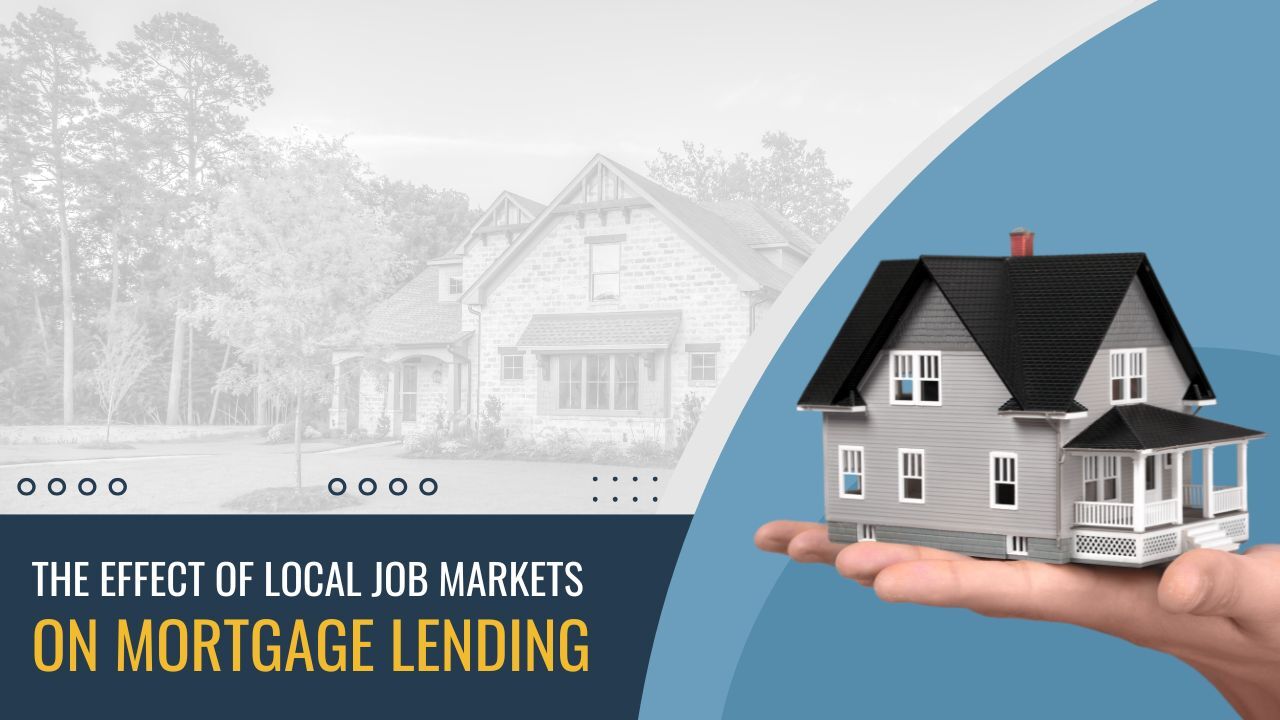 When evaluating the housing market, many people focus on home prices and interest rates. However, one critical factor that often goes unnoticed is the strength of the local job market. Employment trends directly affect mortgage lending by influencing both buyer demand and lender confidence.
When evaluating the housing market, many people focus on home prices and interest rates. However, one critical factor that often goes unnoticed is the strength of the local job market. Employment trends directly affect mortgage lending by influencing both buyer demand and lender confidence.
Why Local Employment Matters
A stable job market means more people have consistent incomes, making them more likely to qualify for home loans. Lenders assess local employment data when determining mortgage risk in a particular area. If job growth is strong, lenders are typically more willing to offer loans, knowing that borrowers are less likely to default. Conversely, areas with high unemployment rates may see more cautious lending practices.
Impact on Homebuyer Confidence
For buyers, job security builds confidence. People are more comfortable purchasing a home when they feel confident in their long-term employment prospects. In regions with expanding industries or new business developments, demand for housing often increases as more workers move to the area and existing residents feel financially secure enough to buy.
Lender Strategies Based on Job Trends
Mortgage lenders monitor local economic indicators closely. If job creation is booming, lenders may introduce more flexible loan programs or ease credit requirements to serve a growing base of potential buyers. In contrast, if layoffs or business closures rise, lenders may tighten lending standards to reduce risk. Your location can directly affect the loan options available to you.
Rural Versus Urban Markets
Urban areas with diverse industries usually offer more stable employment opportunities, supporting steady mortgage lending. In rural areas, where economies may depend on one or two major employers, a single business closure can lead to significant job losses and more restrictive lending. Homebuyers in smaller communities should understand how employment trends impact their local housing market.
The Role of Economic Development
Community development initiatives, such as infrastructure projects, new business openings, or technology hubs, can stimulate job growth and increase homebuyer demand. These developments not only create jobs but also boost property values over time. Buyers and lenders alike benefit from a growing economy, which supports sustainable homeownership.
Consider Your Local Market Before You Buy
When shopping for a home, consider not only the property itself but also the local job market. Employment stability can affect your home s future value and your long-term financial security. A mortgage professional with local market knowledge can help you evaluate both your financing options and the economic trends that may impact your investment.
If you are curious about how your local job market affects your homebuying plans, connecting with a mortgage expert can help you understand your options.
